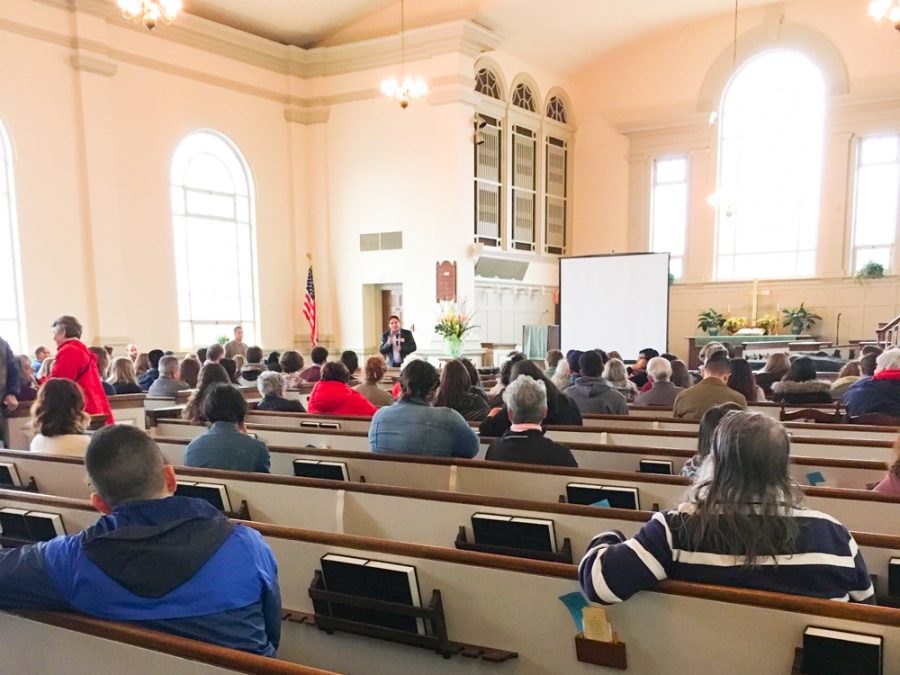“Jornaleros” shown in Walla Walla
February 2, 2017
Voz Worker’s Rights Organization came to Walla Walla last Saturday to show their documentary “Jornaleros,” which showcased the lives of day laborers in Portland. This event was hosted and organized by Borders as Movements Club (BAM) with help from Whitman Professor of Politics Paul Apostolidis.
Voz is a Portland based nonprofit which works to protect and empower day laborers and immigrants. “Jornaleros” is a 30 minute documentary produced by Voz to showcase the lives of five day laborers in Portland. The documentary focuses on the artistic talent of the jornaleros, or day laborers, featured in the film. Voz has shown the film around Portland and in a few places on the West Coast, including in Walla Walla this past Saturday.
The screening took place at the First Congregational Church in Walla Walla, followed by a question and answer session with Romeo Sosa, the executive director of Voz. BAM hosted the event collaborating with Professor Paul Apostolidis, whose most recent article and upcoming book, “The Fight for Time: Day Laborers and the Politics of Precarious Work,” discuss the film.
The film follows the stories of five migrant day laborers living in Portland. It focuses on the art and music they produce, rather than focusing on the day to day challenges of living as a jornalero. The people featured in the film are Jesse Vasquez and Jesus Kobe, both painters, Jesus “Lolo” Rivas and Francisco Aguirre, musicians and Raul Perez, who writes and performs poetry. The film focuses on their art, but the men also briefly mention the difficulties of learning a new language and adjusting culturally to a new country.
Romeo Sosa, Executive Director of Voz and Director of “Jornaleros,” spoke about the representation of the day laborers found in the film.
“We hope that this film shows a human part of day laborers. They are not only workers, but they are also people with talents. It shows that immigrants are not coming here to destroy the country, immigrants want to build this country with their work,” Sosa said. “They bring a lot of culture from other countries, and they make the United States better with the work that they do.”
Professor Paul Apostolidis has worked with Voz in the past for research and his upcoming book. Apostolidis commented about the film and how it goes beyond one’s expectations of a portrayal of a day laborer.
“It’s an extraordinary film, it’s kind of a like a gem that no one outside this region really knows about,” Apostolidis said. “The key message here is that migrants are more than just working bodies … they’re creative, complex individuals just like everybody else. This is why they make such a focus on their works of art and music and their poetry creations. I just think that the movie does that spectacularly well.”
Senior Cassandra Otero, Budget Manager of BAM and a coordinator of the event, spoke about how going forward she hopes this film and discussion has an effect on the Latino population in Walla Walla and at Whitman. Otero spoke about her desire to create a community space at these events for Latinos in Walla Walla, and how there is a safe space at these events for difficult conversations to be had.
“There are a lot of Latinos in Whitman, in public schools and in the community. For a while there hasn’t been a whole lot of visibility of our struggles and our experiences. I think this is one more step in our visibility,” Otero said. “What I’m really hoping for is to create a space where people feel safe and supported and empowered. A space where allies can learn and show solidarity as well. That’s the huge goal.”






